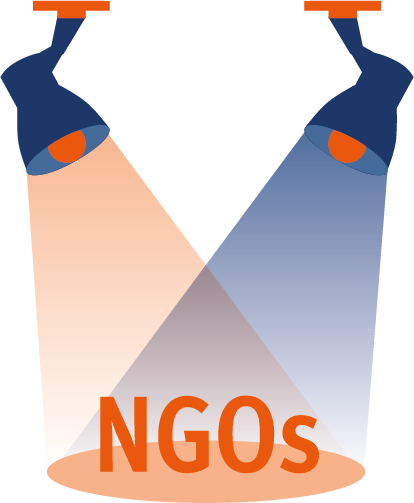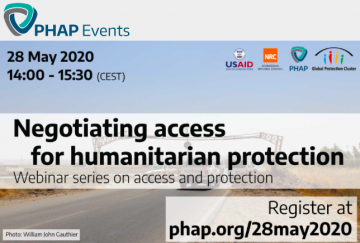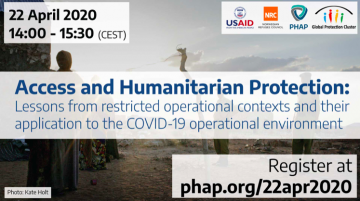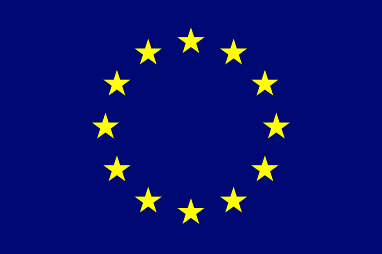What we do How we do it Calendar
What we do
 Striving for effective humanitarian action
Striving for effective humanitarian action
The humanitarian principles are an essential tool for achieving effective humanitarian policy and operations for crisis-affected people. VOICE works to ensure the policies, practices and funding of EU and Member State institutions relevant to humanitarian action increasingly follow core humanitarian principles and good practice. Therefore, VOICE promotes the European Consensus on Humanitarian Aid and its implementation and advocates, for instance, for clear roles and mandates for the various actors involved in crisis and disaster response.
Showing European public solidarity with crisis-affected people
Humanitarian NGOs represent the solidarity of the European public with crisis-affected people around the world. VOICE works to increase the recognition of NGOs as key actors in the delivery of humanitarian action and showcase their added value. Often, NGOs are the best equipped to respond to crises in affected countries due to their expertise and experience. They provide lifesaving goods and services such as food, shelter, water, sanitation, medical care as well as education in emergencies and protection to crisis-affected people in hard to reach areas. VOICE brings its NGO members together to share their knowledge and expertise and use it to shape relevant policy development.
“NGOs are essential to the humanitarian response as they deliver the majority of international humanitarian aid due to their field presence and flexibility, often with a high level of specialisation” – The European Consensus on Humanitarian Aid
To learn more about the added value of humanitarian NGOs click here
How we do it
VOICE’s membership brings together policy and field expertise. VOICE builds common NGO positions through information sharing and gathering members in thematic working groups. The resulting positions are used to influence policy of EU institutions and Member States, including on funding and operational practice. Successful examples include the work of the Resilience – Nexus Working Group on and VOICE’s work across EU Member States to secure additional funding for EU humanitarian action in the next EU long-term budget (MFF).
To improve the effectiveness of its advocacy, VOICE builds alliances with other humanitarian actors e.g. the UN and the Red Cross movement. VOICE also seeks to build bridges between humanitarian action and development by providing expertise on Disaster Risk Reduction (DRR) and humanitarian-development-peace nexus.
- Position papers, studies and publications: VOICE builds common NGO positions through informatio
n sharing and collaboration in Working Groups. These are used to influence policy of EU institutions and Member States, including on funding and operational practice. Recent highlights include VOICE workshop Report: Adding to the evidence: the impact of sanctions and restrictive measures on humanitarian action (2021), VOICE Grand Bargain Task Force Position Paper - An NGO perspective on the drive for efficiency in the humanitarian sector (2020), VOICE Report - NGOs Perspectives on the EU's Humanitarian-Development-Peace Nexus (2019 – see right). Since 2004, VOICE members share their expertise and work in the biannual magazine VOICE out loud.
Click here for more VOICE publications
- Events and Roundtables: VOICE organises and participates in events such as conferences, roundtables, trainings and meetings throughout Europe. Some of these are aimed at informing VOICE members about humanitarian policies and procedures, and assisting them with donor requirements (in particular of the humanitarian aid department of the European Commission, DG ECHO). Many of these activities aim to influence the European Institutions on humanitarian issues.
- Dialogue and Partnership: VOICE plays a key role in facilitating the dialogue and partnership between NGOs and the European Commission on humanitarian aid, including through the FPA Watch Group and its predecessors: one of the oldest official groups for NGO dialogue with the EU.
Quality and accountability initiatives VOICE commits to!
During the past decades, the humanitarian sector has developed and improved a number of voluntary quality and accountability initiatives through standards, guidelines, and indicators to reinforce technical quality and accountability of humanitarian operations.
VOICE members are strongly committed to international quality and accountability initiatives when responding to humanitarian crises for a more sustainable impact on the lives of affected populations and towards its implementing partners and staff. They have been at the forefront of developing, supporting and integrating quality initiatives into their humanitarian work.
VOICE as a network aims to support members’ access to tools, information, and resources related to developing quality assurance systems relevant to their humanitarian work. VOICE members’ concern with the quality of humanitarian action underpins the network’s objective of principled humanitarian action.
VOICE Members are traditionally committed to The SPHERE standards, 40 VOICE members hold a membership with the Core Humanitarian Standard Alliance, 12 VOICE members are certified against the Core Humanitarian Standard.
Click here for more information on the initiatives
VOICE leads 3 working groups, the Humanitarian Partnership Watch Group, including its Task Force, the Resilience-Nexus-Working Group and the EU Funding Working Group:
Humanitarian Partnership Watch Group
Click here for more information on the HP WG
Resilience-Nexus Working Group
The Resilience-Nexus Working Group was established in 2021, building on the successes and achievements of both the DRR-Resilience Working Group (2018-2020) and the DRR Working Group (2007-2017). The small revision made to the groups’ Terms of Reference gives it a greater focus on nexus, resilience and climate change.
The DRR Working Group established itself as the main reference point for EU Institutions with NGOs on DRR policy and practice, and the new group seeks to expand this influence to the increasingly prominent resilience and nexus and climate agendas.
The group's overarching goal is to provide the humanitarian NGO perspective for the European approach to resilience, climate change and the implementation of the humanitarian-development-peace nexus.
In 2019, the Working Group shaped the VOICE study NGOs Perspectives on the EU's Humanitarian-Development-Peace Nexus, especially by providing case studies.
Click here for more information on the Resilience-Nexus Working Group (members only)
Working Group on EU funding for Humanitarian Assistance
The EU Funding Working Group brings together VOICE members to exchange analysis and coordinate advocacy on EU funding frameworks relevant to humanitarian action. The group focuses in particular on the EU’s annual budget for humanitarian action, the Multiannual Financial Framework (MFF), and the design and implementation of external action instruments, with a view to safeguarding principled, needs-based, and predictable humanitarian funding. It provides a space for members to share information, identify common concerns, and develop joint positions and recommendations vis-à-vis EU institutions, contributing to VOICE’s collective advocacy on the governance, structure, and safeguards of EU funding affecting humanitarian action.
Click here for more information on the EU Funding Working Group (members only)
Calendar
-

Egmont and NCR webinar: The future frame of EU humanitarian aid
onlineOrganised by members -

Round-table - Humanitaire : regards croisés sur l’insécurité-
OnlineOrganised by members -

Syria Conference, Panel: Food Security and Livelihoods Humanitarian Response
OnlineOrganised by membersPublic event -

10 Years of Conflict and Disability Among Syrian people
OnlineOrganised by members -

Civilian Safety in Armed Conflict
OnlineOrganised by members -

VOICE DRR-Resilience Working Group meeting
onlineMembers only -

Webinar: Presentation of ECHO's Guidance on Disaster Preparedness
onlineMembers only -

International Rescue Committee- Democracy, Diplomacy & Development: Global Politics in the Age of COVID-19
OnlineOrganised by members -

EU restrictive measures impact on humanitarian aid: Between a principled view for exemptions and a pragmatic approach for an effective derogation process.
Online -

DG ECHO-VOICE membership exchange 2020
Members only -

Workshop: A learning exchange: Approaches for supporting survivor and community-led response
OnlineOrganised by membersMembers only -

VOICE Webinar - The Grand Bargain and the drive for efficiency in the humanitarian sector : Where do we stand? Discussing an NGO perspective with EU stakeholders
OnlinePublic event -

Launch of the WeWorld index 2020 Women and Children in times of Covid-19
OnlineOrganised by members -

VOICE members and ECHO call on climate induced displacement
onlineMembers only -

2020 Global Hunger Index Launch. One Decade to Zero Hunger - Linking Health and Sustainable Food Systems
OnlineOrganised by members -

VOICE DRR-Resilience Working Group meeting
onlineMembers only -

Webinar: Engaging with faith actors: building on lessons of COVID-19
Organised by members -

Webinar: Peace in a time of Pandemic? Conflict, Covid-19 and Displacement in the Sahel
OnlineOrganised by members -

World Humanitarian Day
onlinePublic event -

Launch of the PLAN report “Adolescent girls in crisis: Voices from the Sahel”
onlineOrganised by membersPublic event -

FPA Watch Group Meeting
OnlineMembers only -

DRR-Resilience Working Group Call
onlineMembers only -

Webinar: Negotiating access for humanitarian protection
OnlineOrganised by membersPublic event -

VOICE General Assembly
onlineMembers only -

Webinar: Access and Humanitarian Protection
OnlinePublic event

